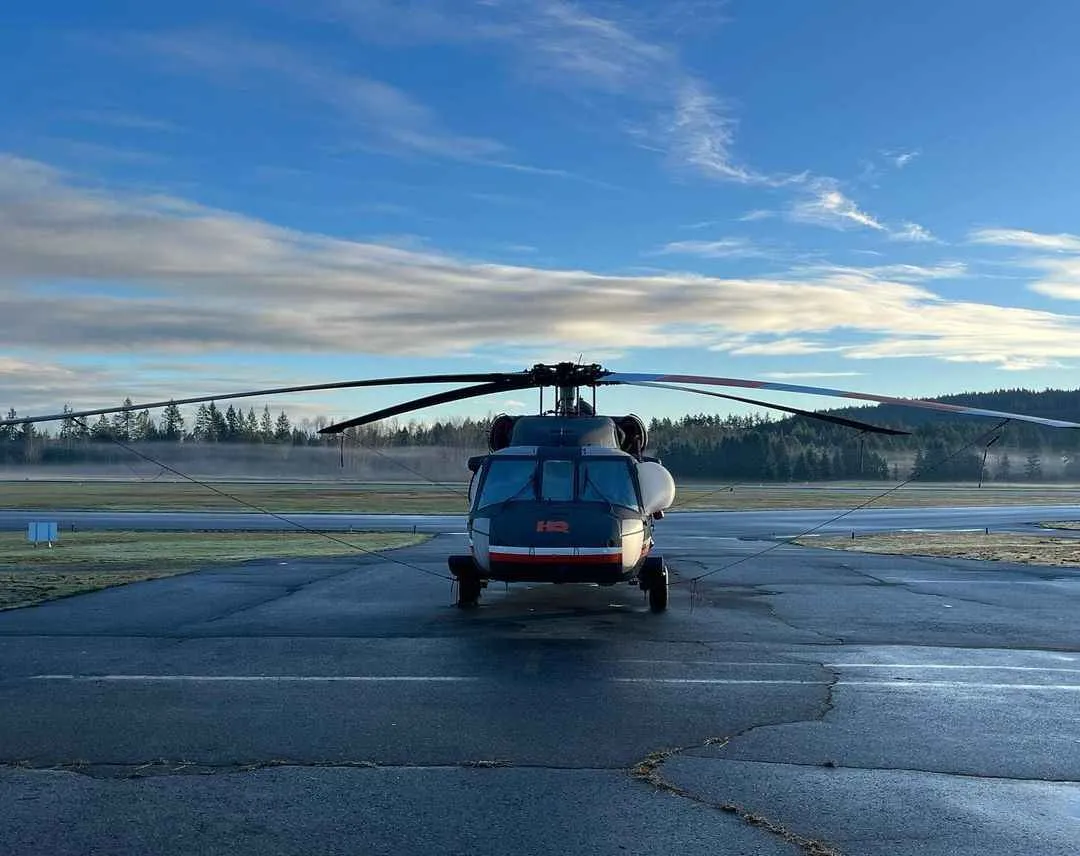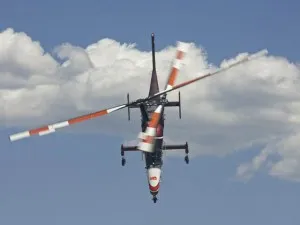


| Manufacturer | KAMAN |
| Engine | Honeywell T53-17A1 |
| Max Horse Power | 1800 SHP |
| Min Crew | One Pilot |
| Empty Weight | 5100 lbs |
| Max Gross Weight External | 6000 lbs |
| Max Operating Ceiling | 15000 DA |
| Normal Cruise Speed | 100 KTS |
| Range | 180 NM |
| Normal Fuel Consumption | 85 US Gals per hour |
The K-1200 K-MAX “aerial truck” is the world’s first helicopter specifically designed, tested, and certified for repetitive external lift operations and vertical reference flight (Kaman received IFR Certification in 1999), an important feature for external load work. Other rotorcraft used for these tasks are adapted from general-purpose helicopters, or those intended to primarily carry passengers or internal cargo. The aircraft’s narrow, wedge-shaped profile and bulging side windows gives the pilot a good view of the load looking out either side of the aircraft.
A K-MAX has been used for demolition work by having a wrecking ball as sling load.
The transmission has a reduction ratio of 24 in three stages, and is designed for infinite life. The rotor blades are built with a wooden spar and fiberglass trailing edge sections. Wood was chosen for its damage tolerance, fatigue resistance and to take advantage of field experience and qualification data amassed from a similar spar on the HH-43 helicopter, built for the U.S. Air Force in the ’50s and ’60s.
The K-MAX relies on the two primary advantages of synchropters over conventional helicopters. The first of these is the most efficient of any rotor-lift technology; the other is the synchropter’s natural tendency to hover. This increases stability, especially for precision work in placing suspended loads. At the same time, the synchropter is more responsive to pilot control inputs, making it possible to easily swing a load thus to scatter seed, chemicals, or water over a larger area.
A K-MAX has been used for demolition work by having a wrecking ball as sling load.